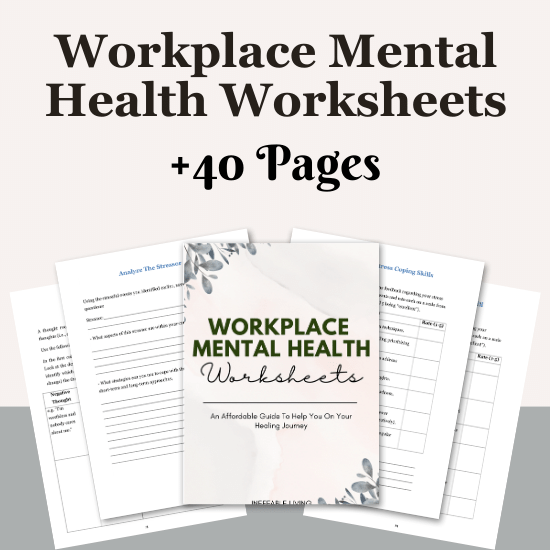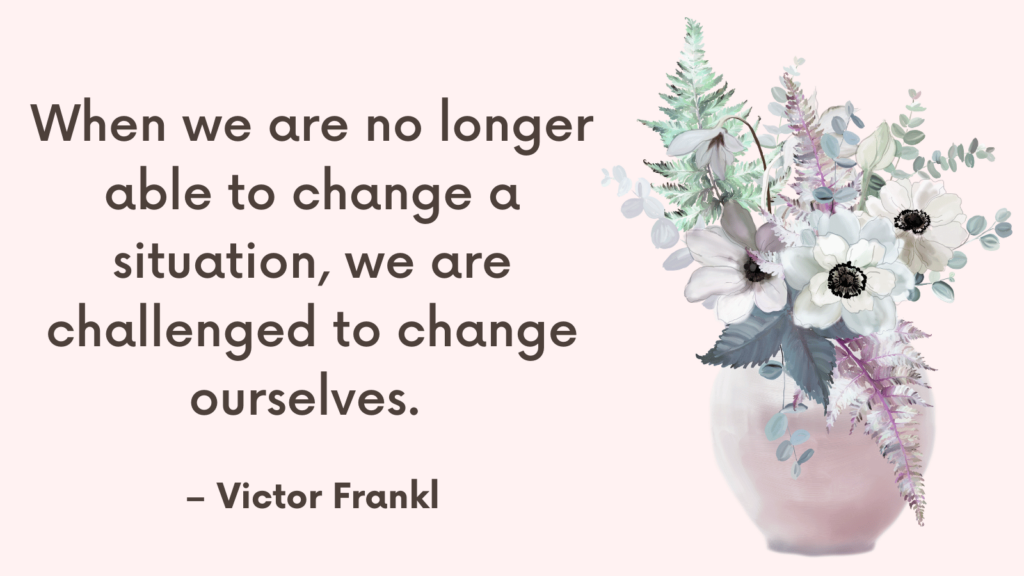In this post, you’re going to find out what to do when your job is making you depressed but you can’t quit.
What Makes a Workplace Toxic?
1. Poor Leadership
Inadequate or ineffective leadership can create a toxic work environment.
This may involve managers who are unsupportive, abusive, or fail to communicate openly and transparently with their team members.
2. Bullying and Harassment
Instances of bullying, harassment, or discrimination within the workplace can significantly contribute to toxicity.
Such behaviors can create fear, anxiety, and emotional distress among employees.
3. Lack of Clear Communication
When communication within the workplace is unclear, inconsistent, or non-existent, it can lead to misunderstandings, conflicts, and a general sense of unease among employees.
4. Excessive Workload and Unrealistic Expectations
Overloading employees with excessive work demands or setting unrealistic expectations can lead to chronic stress, burnout, and a decline in mental well-being.
5. Lack of Support and Respect
A toxic workplace often lacks a supportive and respectful culture where employees feel valued, acknowledged, and appreciated for their contributions.
6. Absence of Work-Life Balance
When employees are expected to prioritize work over their personal lives and well-being, it can lead to feelings of overwhelm, guilt, and dissatisfaction.
7. Unclear or Unfair Policies and Practices
When workplace policies and practices lack clarity or are perceived as unfair, it can erode trust and contribute to a toxic work environment.
8. Fear of Retaliation
Employees may feel reluctant to voice their concerns or seek support due to a fear of retaliation or negative repercussions from management or colleagues.
9. High Levels of Conflict
A toxic workplace often fosters an environment where interpersonal conflicts are not effectively addressed, leading to tension and discord among employees.
Related: Best 55 Positive Affirmations for Work Stress
What to Do When Your Job Is Making You Depressed But You Can’t Quit
When facing the challenge of feeling depressed due to job-related stressors but not being able to quit, it’s important to prioritize your mental well-being and explore strategies that can help you cope with the situation.
Here are some evidence-based suggestions for managing job-related depression when leaving the position is not immediately feasible:
1. Seek Emotional Support
It’s crucial to have a support system in place when dealing with work-related depression.
Reach out to friends, family members, or a trusted confidant who can provide understanding and empathy.
Additionally, consider seeking support from a mental health professional, such as a psychologist or counselor, to gain personalized guidance and coping strategies.
2. Identify Triggers and Explore Coping Strategies
Reflect on specific aspects of your job that contribute to your feelings of depression.
By identifying particular triggers, you can develop targeted coping mechanisms.
This could involve setting boundaries, practicing mindfulness, or engaging in stress-reducing activities outside of work.
Related: Resilient Grieving: Best 17 Ways To Manage Grief In The Workplace (+FREE Grief Worksheets)
3. Establish Work-Life Balance
Strive to maintain a healthy balance between your professional responsibilities and personal life.
Schedule time for activities that bring you joy, relaxation, and fulfillment outside of work.
Engaging in hobbies, exercise, socializing, or other leisurely pursuits can provide a much-needed reprieve from work-related stress.
4. Communicate Boundaries
If possible, communicate your boundaries and limitations to your employer or colleagues.
Setting realistic expectations and advocating for manageable workloads can help alleviate some of the pressure contributing to your depressive symptoms.
Related: Top 25 Tips On How To Set Boundaries Without Being Controlling? (+FREE Worksheets PDF)
5. Utilize Mental Health Resources
Many companies offer employee assistance programs (EAPs) that provide access to mental health resources, including counseling services and support hotlines.
Familiarize yourself with these resources and consider utilizing them to seek professional guidance and support.
6. Practice Self-Compassion
Be kind to yourself and acknowledge that it’s normal to struggle with the challenges of a demanding job.
Practicing self-compassion can help counteract negative self-talk and reduce feelings of inadequacy or self-blame.
Related: How To Be Gentle With Yourself? Top 5 Ways To Practice Self-Compassion
7. Create a Positive Workspace
Find ways to infuse positivity into your workspace.
This could involve decorating your desk with uplifting images, keeping a gratitude journal, or incorporating elements that promote a sense of calm and comfort in your immediate work environment.
8. Develop Stress Management Techniques
Invest in stress management techniques such as deep breathing exercises, progressive muscle relaxation, or meditation.
These practices can help you navigate moments of heightened stress and anxiety while at work.
9. Consider Seeking Legal or Workplace Support
If the source of your job-related depression stems from unfair treatment, discrimination, or harassment, consider seeking legal counsel or workplace support services.
Every individual deserves to work in an environment free from mistreatment or unfair practices.
10. Explore Job Flexibility Options
Investigate whether there are opportunities for flexible work arrangements, such as adjusting your work hours, telecommuting, or job sharing.
Flexibility in your work schedule can contribute to a more manageable and sustainable work-life balance.
Related: Top 9 Jobs for People with Chronic Pain
11. Engage in Regular Physical Activity
Physical exercise has been shown to have mood-lifting and stress-reducing benefits.
Aim to incorporate regular physical activity into your routine, even if it means taking short walks during your breaks or engaging in low-impact exercises at home.
12. Set Realistic Goals and Expectations
Adjust your expectations and set realistic goals for yourself in the context of your current job.
Breaking down overwhelming tasks into smaller, achievable steps can help mitigate feelings of hopelessness and being overwhelmed.
13. Consider Long-Term Career Planning
While immediate resignation may not be feasible, consider developing a long-term career plan that aligns with your values, interests, and well-being.
This may involve exploring alternative career paths, acquiring new skills, or pursuing further education to increase future employment opportunities.
Related: Best 20 Low-Stress Jobs After Retirement
14. Engage in Relaxation Techniques
Dedicate time to relaxation techniques that promote stress reduction and emotional well-being.
This could include activities such as listening to calming music, practicing yoga, or enjoying nature through outdoor walks or meditation.
15. Monitor Your Mental Health
Keep track of your mental health and well-being over time. If you notice symptoms of depression persisting or worsening, seek professional help promptly.
A mental health professional can provide assessment, support, and guidance tailored to your specific needs.
Related: Top 23 Jobs For Highly Sensitive People

Conclusion
By implementing these strategies, you can take proactive steps to manage job-related depression while working towards finding a viable solution for your long-term well-being.



